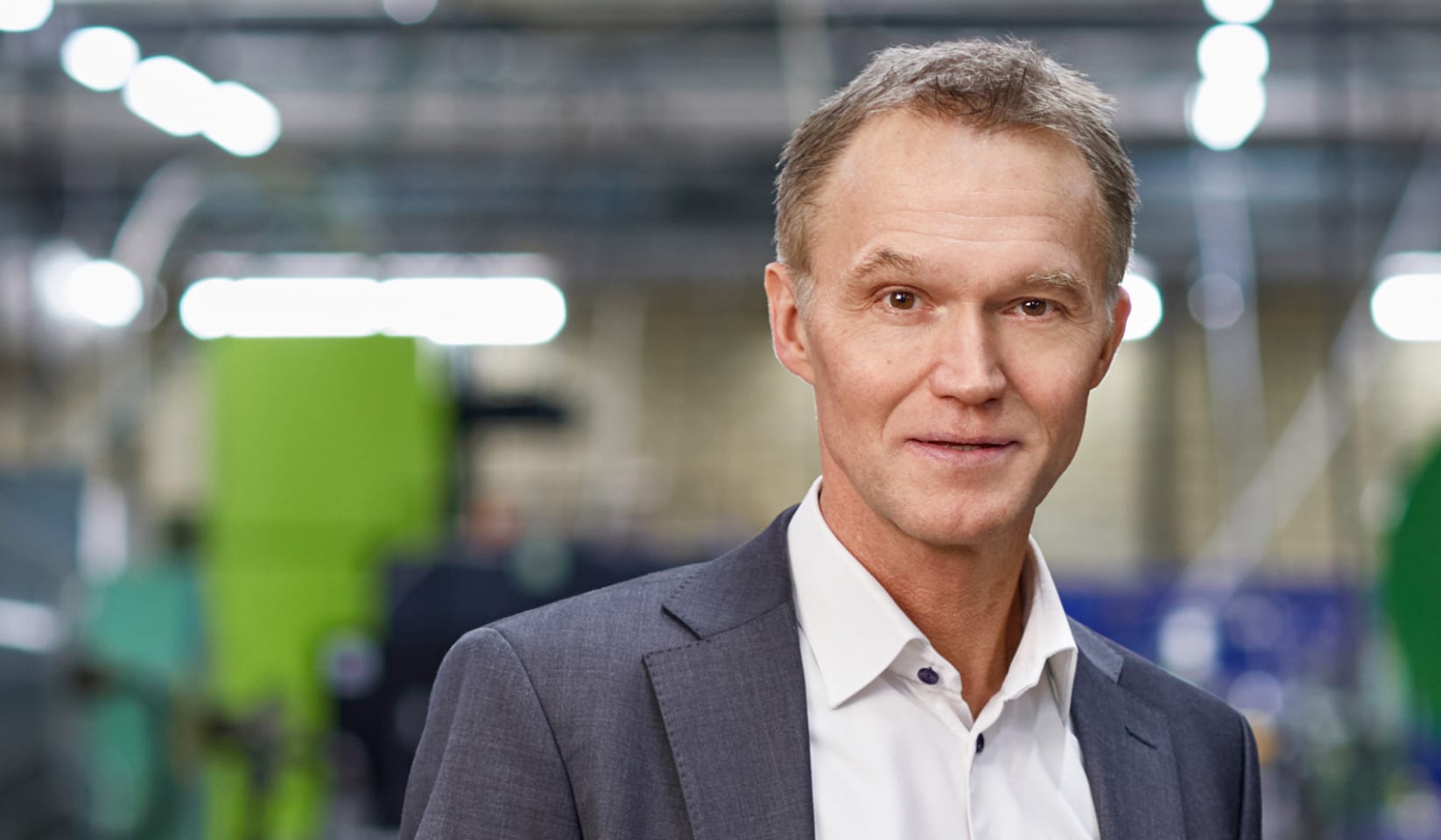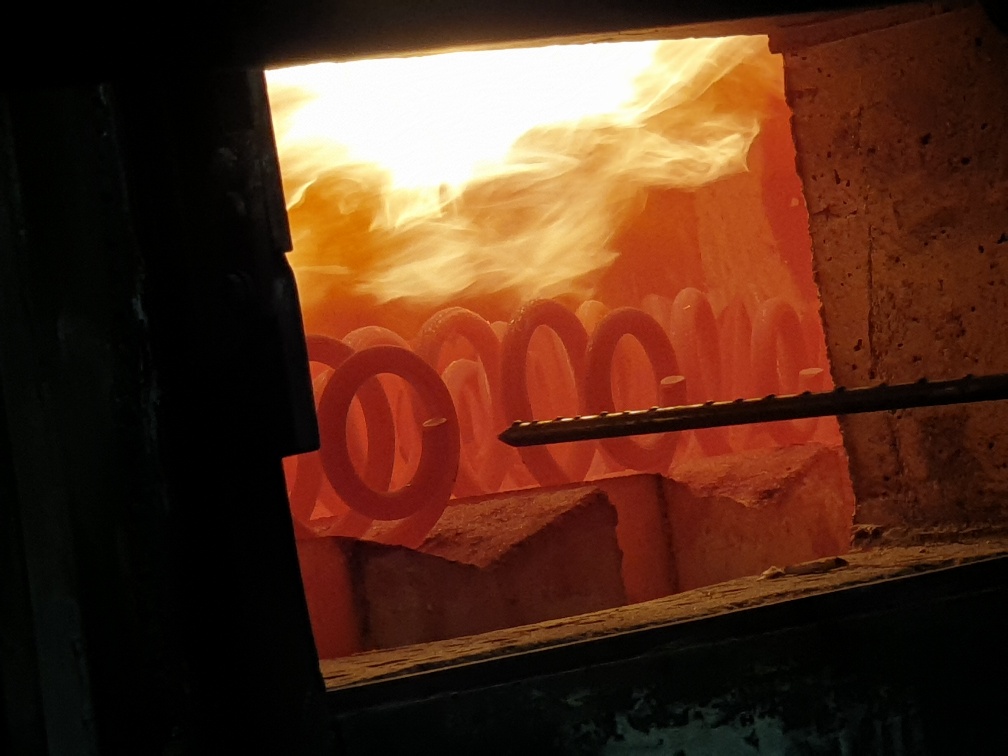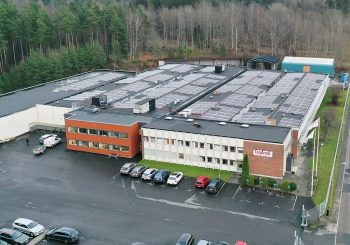Sustainability in focus as Lesjöfors prepares for growth

For this year's ambassador to Elmia Subcontractor, the United Nations' Global Sustainability Goals are not just a piece of paper tucked away somewhere in the office. No, the 17 goals are a concrete part of Lesjöfors’ long-term strategy. Four goals have been identified where a real difference can be made.
- Sustainability is a priority area for the entire Group. Amongst other things, we are developing ourselves and our personnel to be able to focus more and thus have better follow-up, take more measurements and achieve higher quality," says Ola Tengroth, CEO of the Lesjöfors Group.
Business ethics, better use of resources, reduced carbon footprint and a safe and stimulating working environment. These are the areas that Lesjöfors has identified and this is also where the biogas plant in Värmland comes into play. As part of the reduced climate footprint.
A lot of LPG is used in the production of springs, and it has long been a goal of the company to reduce its carbon footprint. With the use of fossil-free biogas oil, the group's total carbon emissions are reduced by 70-90%.
- We are converting to biogas oil, using green electricity and trying to reuse materials in a circular system. Biogas oil is only one part of the strategy, solar cells are another, meanwhile the circular flows are at the investigation level. Here we mainly see opportunities bi-products of the grinding process, which has a high metal content, but also by buying products made from recycled materials," says Ola Tengroth.
Growth always in mind
While Lesjöfors began its major investments in sustainability in 2021, the feeling about the Group's future was positive. Despite the pandemic, the company stands strong and the vision is growth through increased use of the Group's in-built competences.
- It's full-speed ahead and growth is the name of the game. We see the opportunity and are investing in segments that look particularly interesting and where we already have capacity. For example, in the medical branch where there are some strong opportunities but we haven’t quite made an impact yet. We are not going to change the Group's business model, but instead create the right conditions for growth," says Ola Tengroth.
He himself says that there is a lot of unused capacity in the Group that is fertile ground for good organic growth. To a large extent, it's a matter of spreading the enormous expertise that exists in the company to all departments and thus developing and broadening sales.
- We do not build new competencies, but rather train each other within the group. The internal development of skills will have a knock-on effect and will lift the Group in the areas we already have today.
The organisational structure for this is in place. Responsible people are in place. What we need to do now is to identify skills gaps within the Group and work out what needs to be done to fill them.
To do this, Ola Tengroth is looking at some of the large Swedish groups - at their methods and processes - without destroying the power of the Lesjöfors Group's entrepreneurial spirit.
All in order to become better at selling all of the group’s products locally.
- We are a large company and cannot carry on as if we were a small one with 40 staff. We need to start systemize to achieve rapid growth and that is why we are bringing in new companies. In the past, when we had 15 companies, it worked because we knew each other and we would pick up the phone if we needed something. But that doesn't work today now that we are 40 companies," he says and continues:
- We need to work more systematically with structural capital, but at the same time preferably without sabotaging the power of local decision-making and being able to make decisions quickly on the ground.
Actions that bring business
These are ambitious goals. Both in terms of growth and sustainability. But they are also necessary given the demands of owners, customers, employees and suppliers. There is simply no getting around the fact that working towards solid sustainability and increased growth are ultimately one and the same thing.
- It also adds value to us as a supplier. If we look at the entire value chain, we can easily recoup the investments we make in sustainability. If we can offer our customers a sustainable alternative and at the same time charge better, then sustainability and business go hand in hand," says Ola Tengroth.
When sustainability started to become an issue, albeit low on the agenda, in the 1990s, it was important to demonstrate the link between sustainability and business. Today, this is a matter of course, as the demands are getting higher - perhaps most of all from companies themselves.
- We have learned to leave no stone unturned but we are not there yet. Above all, we need to be clearer in identifying where there is potential to do more. It's part of our drive to get better at measuring and monitoring our sustainability performance.
Clarity, transparency and communication. Three key words that Ola Tengroth often returns to. Internal communication is particularly important to get everyone pulling in the same direction. Not just because the owners want to achieve the goal, but because it actually makes a difference to the environment.
- It's satisfying to go to work when it's not just about making money for the company. I like it when a large group like Lesjöfors has the resources to really make a difference. At the same time, each company does the work on its own terms. That's why it's also important to celebrate the small victories. It gives a sense that the sum of all the small parts still makes an impact.
Fast payback on money invested
The switch to fossil-free biogas oil at the plant in Värmland initially involves a small cost for Lesjöfors. There were other, cheaper alternatives, but this would have required some changes in the production process. Now, in principle, the switch means that Lesjöfors is only replacing the current LPG with a fossil-free LPG.
- In the short term, the investment involves a small additional cost, but the positive effects are so strong that it is worth the effort. We don't think sustainability costs money - well, it costs money but the payback is very high. This way we can do good things and at the same time be attractive on the market," says Ola Tengroth.
The new fuel contains exactly the same propane molecule as the old one, but is made from bio-based substances such as meat industry waste, frying oil and sugar beet peel. It may seem like a small effort to switch to LPG made from waste and in only one plant. But Lesjöfors has done its job.
The choice of the plant in Värmland was highly strategic. High temperatures during heat treatment and curing, for example, mean that the use of LPG in the plant is high. And depending on whether the gas is fossil-free or not, this makes a big difference to the overall carbon footprint.
In terms of figures, the Lesjöfors Group aims to reduce carbon dioxide emissions by 2,700 tonnes over a five-year period - the new bio-based LPG in Värmland alone accounts for 1,800 tonnes.
- It feels absolutely fantastic. Sustainability is all about tweaking and tweaking, and often there are small, small gains. This feels like winning the Champions League because we've been able to find a clear and definite change that has really made a difference," says Ola Tengroth.


